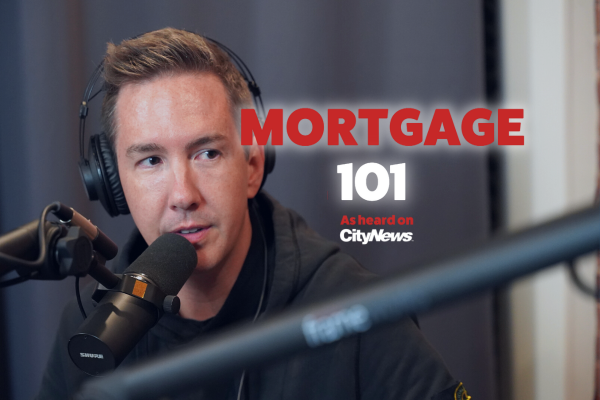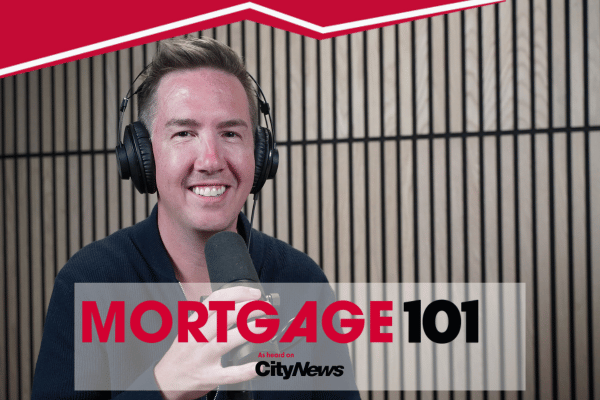How affordable is the Nova Scotian market? Real estate is more affordable in Nova Scotia compared to other markets. Clinton and Todd reflect on the challenges of buying starter homes, citing increased property values and stagnant income growth.

Mortgage 101- Slow and Steady Wins The Supply Race | September 25, 2023
In this edition of Mortgage 101, Clinton Wilkins and Todd Veinotte talk about how the pandemic has impacted inflation and the housing supply. The guys talk about inflation trends, predictions for the rates going forward, the affordable model and rising rental demand
Please note that the below content is pre-recorded and may not always reflect the most current information or developments.
Todd Veinotte 00:02
Clinton Wilkens, are you having a good time so far?
Clinton Wilkins 00:04
I’m having a great time.
Todd Veinotte 00:06
Why do you have such a great time doing this? Because you really genuinely, like doing this.
Clinton Wilkins 00:12
Yeah, I love education. And I think we’ll just do another shout out. We’re not sure what’s going on with the storm, because we recorded this on on Wednesday night, we hope everybody is staying safe. And I hope it just passes our region.
Todd Veinotte 00:23
Let’s hope it’s nothing for us.
Clinton Wilkins 00:25
Batten down the hatches
Todd Veinotte 00:26
That’s right, be prepared right?
Clinton Wilkins 00:27
Be prepared.
Inflation is a runaway train post-pandemic
Todd Veinotte 00:28
Okay. So being prepared, being prepared for what happened with the Bank of Canada over the last year. Plus, we know that during the year, we go back to 2020, or whatever it was, I mean, rates were historically low. Basically, money was free at that point, correct?
Clinton Wilkins 00:44
Pretty close to free
Todd Veinotte 00:45
Pretty close to free. And the messaging that we heard consistently, at least what I heard consistently being in the news cycle, was encouragement to get out there and borrow now’s a great time to borrow. And people did that. And I’ve heard criticism within the within the media, from some people in media sources, saying that a lot of that was was not responsible advice, based on the fact that interest rates could and would likely go up now a lot of contributing factors went into inflation, like the pandemic supply chain and all that. But do you think that in retrospect, all the advice to borrow and get a large mortgage, based on low interest rates was that perhaps not the best advice at the time?
Clinton Wilkins 01:29
Well, the governor of the Bank of Canada said that interest rates are going to be low for the foreseeable future. So that’s really the authority on what’s going on with rates. And if you took that advice, which I think a lot of people did, economists took it, we took that advice, borrowers took that advice. If that was all in the media, then we proceeded down that path. The one thing we didn’t know about was inflation. So inflation was not out of control at that time, inflation was below negative at some points during the pandemic. And the one factor that we forget about here is during the pandemic, borrowers paid off, so so much debt. Canadians pay down their debt, they were not out spending. And then things changed. The situation changed, people saved money. They started to be able to go out and about again, and they started spending and inflation became a runaway train. And that’s the one thing Bank of Canada was not banking on. The bank was not banking, on inflation becoming a runaway train, and they waited too long to start increasing these interest rates. So then they had to increase them faster and higher than probably anyone really expected. And I think when interest rates typically go down, they go down slowly. And when they go up, they’re increasing, the more quickly to be able to stay the problem, right, which was inflation. And, you know, inflation is going in the right direction, there’s been little bumps where it’s like increased a little bit or hasn’t been as low as they want it. So they’ve had to increase rates, but inflation is going in the direction that we need. The one thing that is really not where they want, which is a consequence of you know, having inflation going down, is the job numbers are still very strong. And that’s a concern for the Bank of Canada, because we’re not seeing the losses that they thought they were going to see as a result of the increases going up. Because we need to remember, it’s not just borrowers that are impacted by higher cost of borrowing. It’s businesses, corporations, it’s their access to credit and their cost of capital. It has a huge, huge impact here.
Rates will soften, but it will be a slow burn
Clinton Wilkins 03:42
You know, Canadians by and large, borrowed money with mortgages, because the rates were very low, and they thought they were going to be low for the foreseeable future. They were not low for the foreseeable future. They actually were low for a long time. And then the last 18 months, we’ve been starting to feel pain. They were low for a lot longer than they’ve increased. But we have very short memories, I think as borrowers and we’ve very short memories as Canadians, that these rates were low for a long, long time. And yeah, they went down even more during the pandemic, but they were still low before the pandemic, right. So we’re only really feeling the pain the last 12, 18 months. And honestly, my prediction and I will fall on the sword. I will say this right now, on the record on our show. I think if inflation stays where it’s at, or goes down, I think the Bank of Canada will see by next summer, the rates will start to soften.
Todd Veinotte 04:39
By next summer?
Clinton Wilkins 04:40
Next summer, they will start to soften.
Todd Veinotte 04:42
To what degree?
Clinton Wilkins 04:43
I think it’s gonna be a very slow burn on the way down. Very, very slow. So I think it’s gonna take some time, I think when we start seeing rates go down, they’re not going to go from where they’re at now, to where they were during the pandemic, that is not happening. When they start going down, it’s going to be a slow burn on the way down, I think we’re gonna see those 25, 50 basis point decreases on the way down. Slow step, slow step, slow step, because the Bank of Canada doesn’t want to put the fuel on the fire. Right? They don’t want to re-accelerate the economy. They don’t want to re-accelerate the housing market. And the one interesting thing is, here in Halifax, our housing market is still in very high demand. We’re not seeing what’s going on in Ontario and BC. We’ve not seen prices go down or demand go down. The challenge here is supply. I read an article before we started our show that supply is moving in the right direction. But the government of Canada thinks that it’s going to be another seven years plus before they can catch up to where we need, I think in Halifax is going to be longer than seven years. I think it’s going to be 10 to 20 years before supply catches up.
Developers made deals before the pandemic
Todd Veinotte 05:54
Tell me about some of these, some of these large buildings, and we see them all over the city, I mean, big, big, tall buildings, skyscrapers, skyscrapers budgeted for Halifax standards, I would think that the borrower, and this might be a little out of the out of the scope of what we normally talk about, but I would think for that buyer, they must have immense pressure on them. Or that builder, that developer, right? Because there would be 10s upon 10s upon 10s of millions of dollars going out the door before you see anything coming back in.
Clinton Wilkins 06:25
Yeah, I think the developers that are doing these big, big projects have deep pockets. Yeah, honestly, they have deep pockets. And I think a lot of these, we’ll call them deals were done pre-pandemic, these deals have been in the works sometimes for 5, 10 plus years before there’s even shovels in the ground. And I think that’s a challenge with developers, and development in general, the planning just takes so long to be able to get that finished product out to market. But we have such a demand here that we need to do whatever we can to get these developers to continue developing. We need the rentals, we need the condos, we need the townhomes, we need single family homes. We need all types of housing, including affordable housing here in our city to meet the demands.
The affordable model and rising rental demand
Todd Veinotte 07:09
So what’s the affordable model look like then? How does that work? Because I mean, obviously, I don’t know that we would need a Crown Corporation building houses. I mean, that’s probably the last thing we need right?
Clinton Wilkins 07:18
I mean yes or maybe it is a public private partnership. Maybe that would work better. You know, I think we’ve had and we’ve tried the crown owning real estate in the past. And that model is not great. You know what I mean? I think private owners do a better job at managing real estate. And in my personal opinion, even for affordable housing, I don’t think that government really is in the business of housing. The government is in the business of business development, and maybe incentivizing private owners to do it because private owners have more maybe skin in the game. And they have the asset where the government, they don’t really care about the assets and the liabilities as much right. The government’s debt way outweighs their assets in most cases. Right?
Todd Veinotte 07:18
But I would think though, like there’s a lot of talk about houses being unaffordable rentals being unaffordable, but obviously people are paying this rent, there are people out in here in Halifax that are willing to and will fill those vacancies.
Clinton Wilkins 08:20
And I would venture to say, Todd, and you know how our real estate prices have increased? I think our rents have increased faster than our cost of real estate. Right? I would venture to say that because the rentals I think have the most demand right now. Because it’s 1% vacancy in Halifax.
Todd Veinotte 08:37
And people are paying it right?
Clinton Wilkins 08:39
People are paying it. And we did a special feature on your radio show about people are becoming more creative with housing. We’re looking at multi, maybe generational housing, or maybe it’s three or four people getting in on a housing situation. Because of the prices in order to buy a home. there needs to be multiple people involved in some cases.
Todd Veinotte 09:03
Yeah. Okay, what else we got? We got a couple more segments. What else do you wanna talk about?
Clinton Wilkins 09:08
We’re certainly going to talk more about like you wanted to talk about self-employment so we’re certainly going to dig into that. And you know, we’re also going to talk about you know, really, why is the fall such an interesting time for real estate? Why is it interesting? And I also promised our listeners I’m going to tell them what interest rate you should not take.
Todd Veinotte 09:28
Not take. The high one I said.
Clinton Wilkins 09:31
You said the high one. So we’ll keep on teasing that maybe we’ll save that for last so you make sure you continue to tune in.
Todd Veinotte 09:35
Mortgage 101 your guide to homeownership. We will be right back.
Clinton Wilkins 09:47
If you’ve liked what you’ve heard, and you want to learn more, feel free to visit us online at Tim clinton.ca


